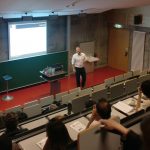 Jan Wiener, Ramona Grzeschik and Chris Hilton represented the Ageing & Dementia Research Centre (ADRC) at the 40th European Conference on Visual Perception (ECVP) 27–31 August 2017 in Berlin and the 20th Conference of the European Society for Cognitive Psychology (ESCoP) 3-6 September 2017 in Potsdam.
Jan Wiener, Ramona Grzeschik and Chris Hilton represented the Ageing & Dementia Research Centre (ADRC) at the 40th European Conference on Visual Perception (ECVP) 27–31 August 2017 in Berlin and the 20th Conference of the European Society for Cognitive Psychology (ESCoP) 3-6 September 2017 in Potsdam.
The ECVP is an annual meeting that brings together researchers from Psychology, Neurosciences, Optics, Computational Sciences and more. Besides vision, other modalities are represented as well as their interaction (multisensory perception). The conference of the ESCoP is being held once every two years. The society’s mission is “the furtherance of scientific enquiry within the field of Cognitive Psychology and related subjects, particularly with respect to collaboration and exchange of information between researchers in different European countries”.
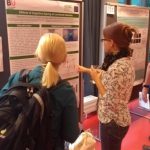 Ramona represented the ADRC at both conferences with her ESRC-funded project on Dementia-friendly environments. In particular, she presented a poster with the latest results of her wayfinding experiment where she investigated the route learning abilities and eye movements of young and old participants.
Ramona represented the ADRC at both conferences with her ESRC-funded project on Dementia-friendly environments. In particular, she presented a poster with the latest results of her wayfinding experiment where she investigated the route learning abilities and eye movements of young and old participants.
At the ESCoP conference, Jan gave a talk on “What can eye-tracking tell us about the cognitive mechanisms underlying successful navigation?” where he introduced a couple of experiments that investigated eye movements during route and place learning in Virtual Environments.
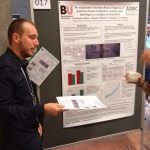 Chris presented his results at the ESCoP as well. His poster titled “An exploration into the effects of ageing on general control of attention during route learning in a complex environment.” escribed his experiment using a natural looking virtual environment called “Virtual Tübingen”. He investigated attentional engagement during a route learning task in young and old participants.
Chris presented his results at the ESCoP as well. His poster titled “An exploration into the effects of ageing on general control of attention during route learning in a complex environment.” escribed his experiment using a natural looking virtual environment called “Virtual Tübingen”. He investigated attentional engagement during a route learning task in young and old participants.
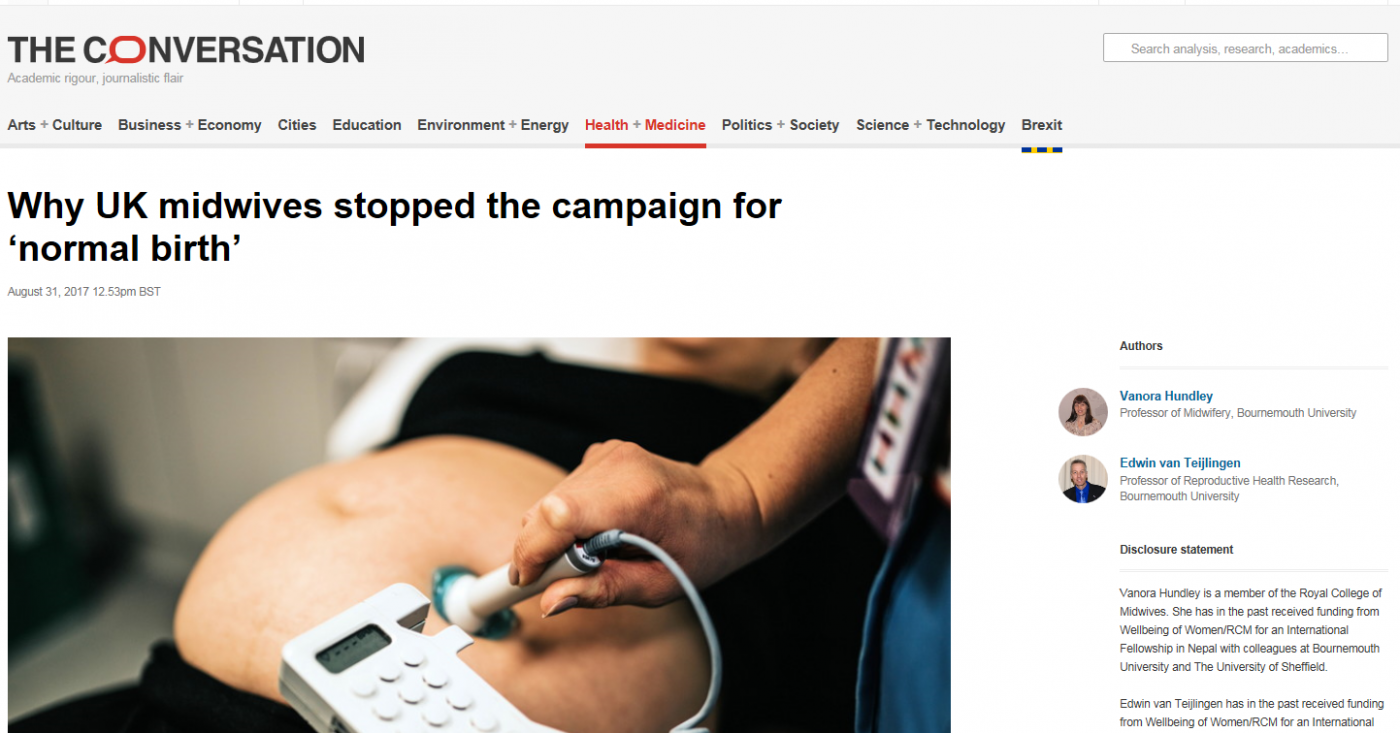

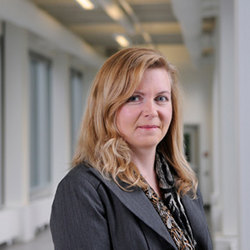



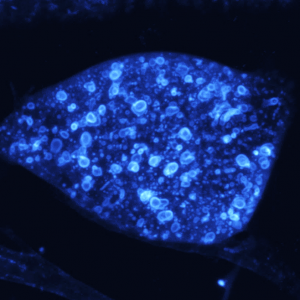 esearch, (led by me, Dr Paul Hartley), was recognised at UK Kidney Week in Liverpool last week. We were invited to speak about our fruit fly model of human renal disease, work that has been variously supported by grants from the British Heart Foundation and Kidney Research UK. The conference was an excellent opportunity to showcase the model and highlight our current collaborations with consultant-scientists based at Great Ormond Street Children’s Hospital as well as a number of different groups at the University of Bristol, the University of Osnabruck in Germany, Harvard Children’s Hospital and the University of Edinburgh. The research work is based in Dorset House labs and is supported by a wide network of talented people within BU as well as our undergrad and post-grad students.
esearch, (led by me, Dr Paul Hartley), was recognised at UK Kidney Week in Liverpool last week. We were invited to speak about our fruit fly model of human renal disease, work that has been variously supported by grants from the British Heart Foundation and Kidney Research UK. The conference was an excellent opportunity to showcase the model and highlight our current collaborations with consultant-scientists based at Great Ormond Street Children’s Hospital as well as a number of different groups at the University of Bristol, the University of Osnabruck in Germany, Harvard Children’s Hospital and the University of Edinburgh. The research work is based in Dorset House labs and is supported by a wide network of talented people within BU as well as our undergrad and post-grad students.
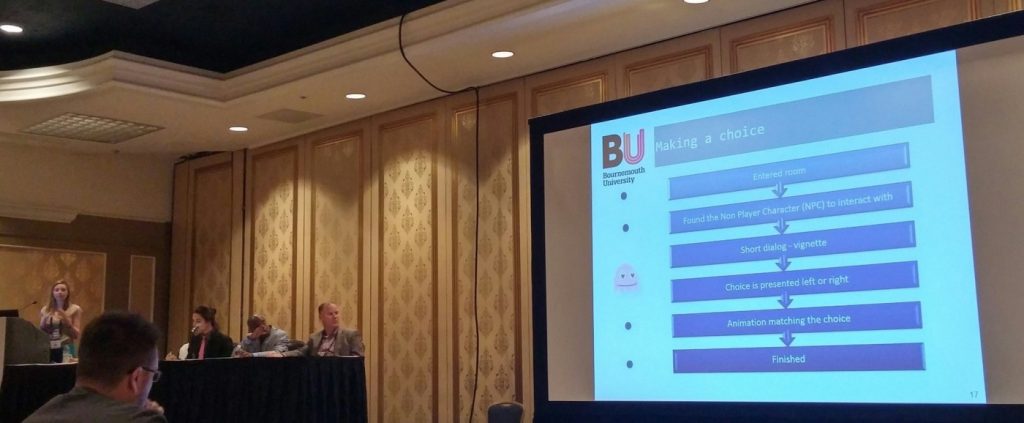 student paper. The research presented was funded by the University Student Research Assistant (SRA) scheme, which involved collaboration between departments and faculties. The research involved creating a game to measure in-game moral decisions. The research team included Jacqui Taylor and John McAlaney from the Department of Psychology, Davide Melacca and Christos Gatzidis from the Department of Creative Technology, and Eike Anderson from the National Centre for Computer Animation.
student paper. The research presented was funded by the University Student Research Assistant (SRA) scheme, which involved collaboration between departments and faculties. The research involved creating a game to measure in-game moral decisions. The research team included Jacqui Taylor and John McAlaney from the Department of Psychology, Davide Melacca and Christos Gatzidis from the Department of Creative Technology, and Eike Anderson from the National Centre for Computer Animation.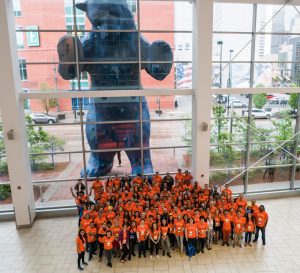
 volunteers with their duties. Sarah found it to be a great experience and highly recommends other students to consider being a student volunteer as a great chance to network and it also helps with funding conferences as the registration fee was waived.
volunteers with their duties. Sarah found it to be a great experience and highly recommends other students to consider being a student volunteer as a great chance to network and it also helps with funding conferences as the registration fee was waived.
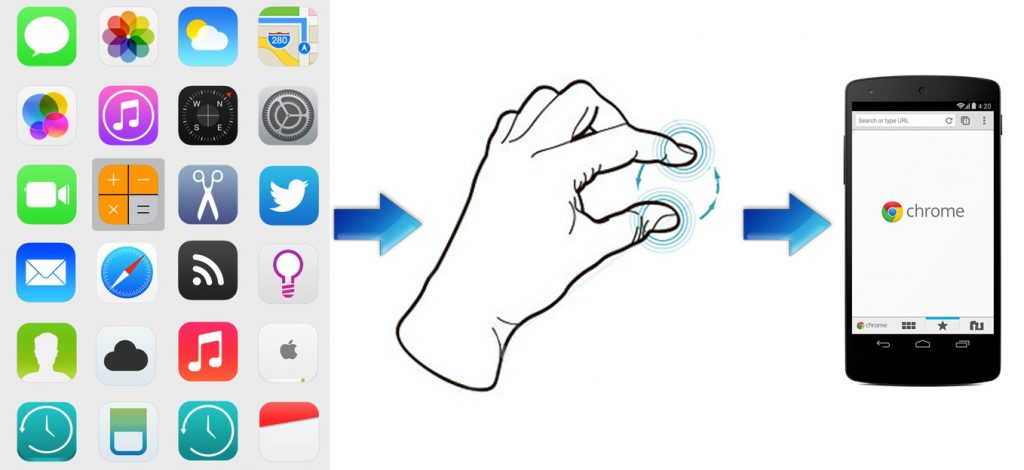

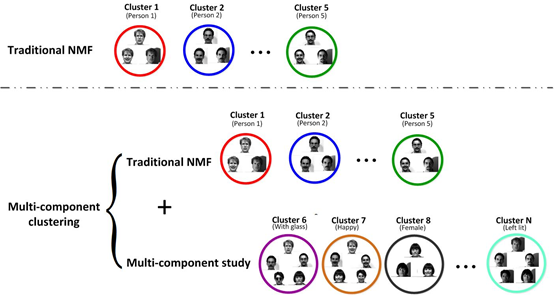











 SPROUT: From Sustainable Research to Sustainable Research Lives
SPROUT: From Sustainable Research to Sustainable Research Lives BRIAN upgrade and new look
BRIAN upgrade and new look Seeing the fruits of your labour in Bangladesh
Seeing the fruits of your labour in Bangladesh Exploring Embodied Research: Body Map Storytelling Workshop & Research Seminar
Exploring Embodied Research: Body Map Storytelling Workshop & Research Seminar Marking a Milestone: The Swash Channel Wreck Book Launch
Marking a Milestone: The Swash Channel Wreck Book Launch ECR Funding Open Call: Research Culture & Community Grant – Application Deadline Friday 12 December
ECR Funding Open Call: Research Culture & Community Grant – Application Deadline Friday 12 December MSCA Postdoctoral Fellowships 2025 Call
MSCA Postdoctoral Fellowships 2025 Call ERC Advanced Grant 2025 Webinar
ERC Advanced Grant 2025 Webinar Update on UKRO services
Update on UKRO services European research project exploring use of ‘virtual twins’ to better manage metabolic associated fatty liver disease
European research project exploring use of ‘virtual twins’ to better manage metabolic associated fatty liver disease